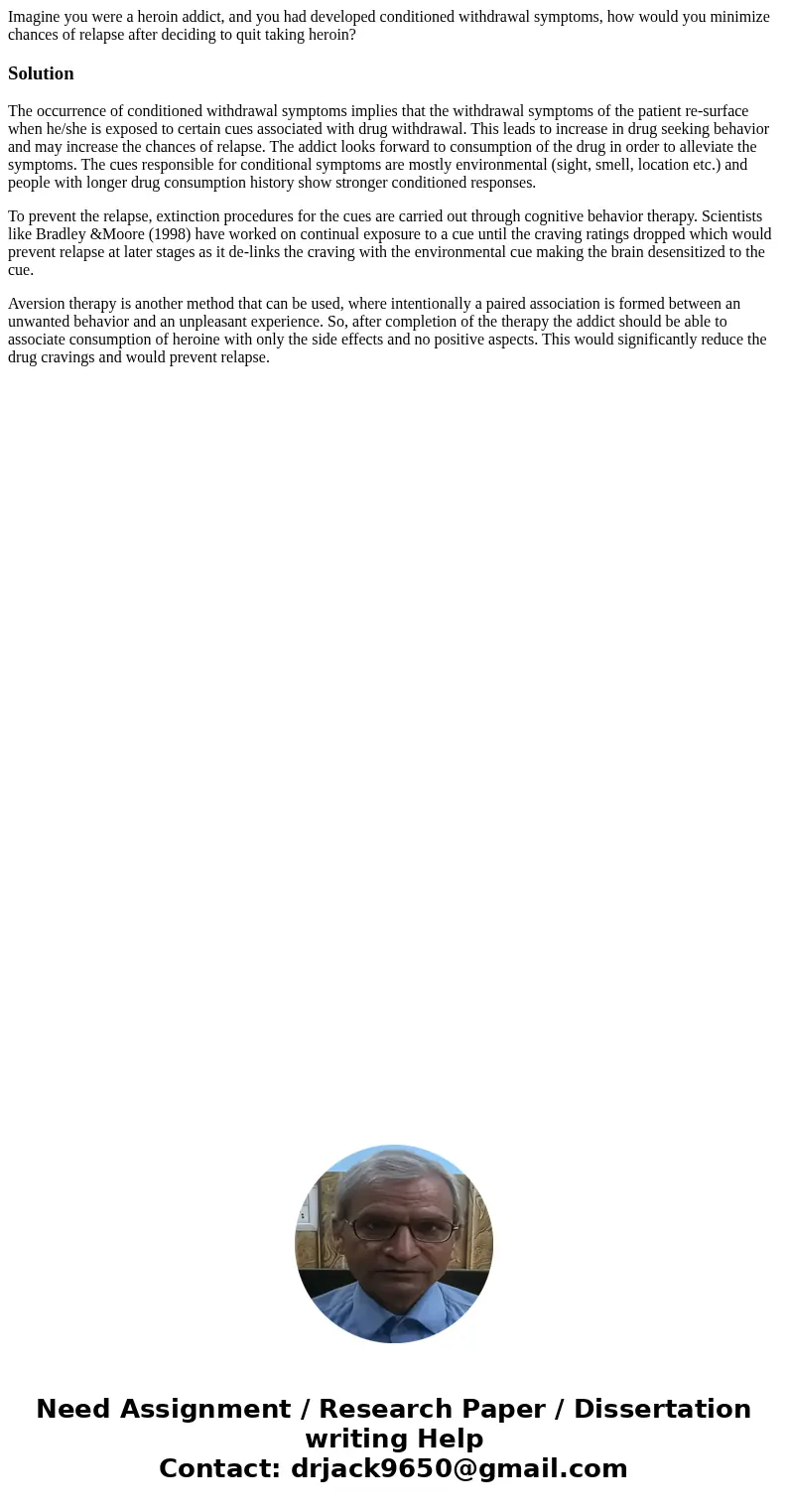Imagine you were a heroin addict and you had developed condi
Imagine you were a heroin addict, and you had developed conditioned withdrawal symptoms, how would you minimize chances of relapse after deciding to quit taking heroin?
Solution
The occurrence of conditioned withdrawal symptoms implies that the withdrawal symptoms of the patient re-surface when he/she is exposed to certain cues associated with drug withdrawal. This leads to increase in drug seeking behavior and may increase the chances of relapse. The addict looks forward to consumption of the drug in order to alleviate the symptoms. The cues responsible for conditional symptoms are mostly environmental (sight, smell, location etc.) and people with longer drug consumption history show stronger conditioned responses.
To prevent the relapse, extinction procedures for the cues are carried out through cognitive behavior therapy. Scientists like Bradley &Moore (1998) have worked on continual exposure to a cue until the craving ratings dropped which would prevent relapse at later stages as it de-links the craving with the environmental cue making the brain desensitized to the cue.
Aversion therapy is another method that can be used, where intentionally a paired association is formed between an unwanted behavior and an unpleasant experience. So, after completion of the therapy the addict should be able to associate consumption of heroine with only the side effects and no positive aspects. This would significantly reduce the drug cravings and would prevent relapse.

 Homework Sourse
Homework Sourse